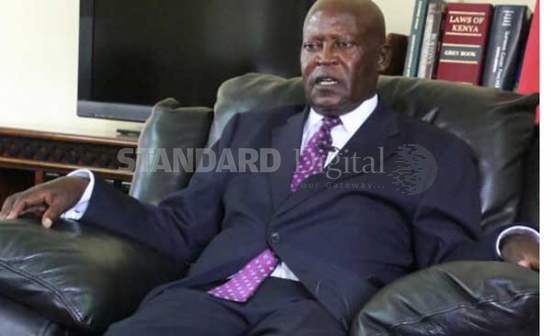×
The Standard e-Paper
Join Thousands Daily

Today is D-day for Supreme Court judge Phillip Tunoi as a committee investigating bribery allegations against him gives its verdict.
Justice Tunoi is facing the possibility of being investigated by a tribunal should the six-member Judicial Service Commission committee be convinced by the affidavit sworn by former Kass FM journalist Geoffrey Kiplagat.